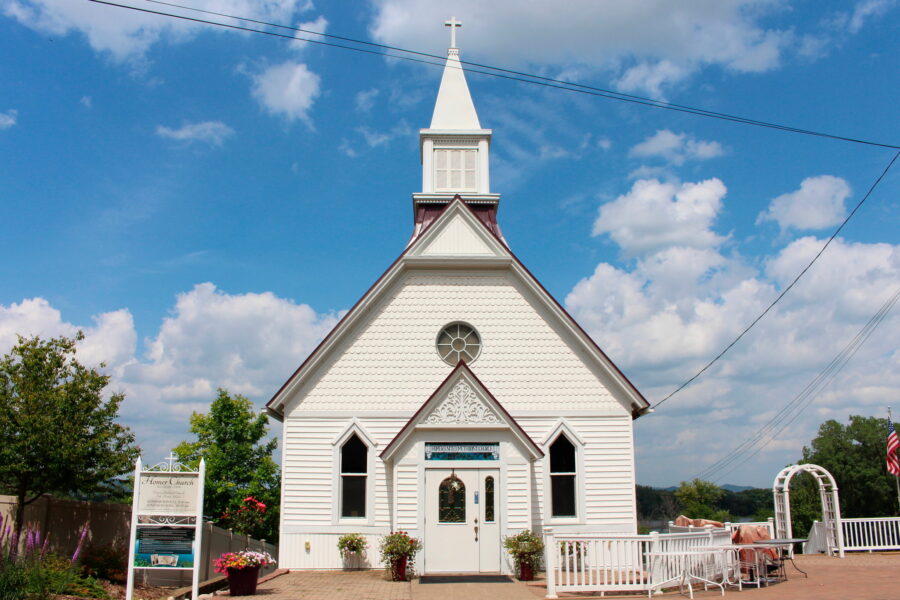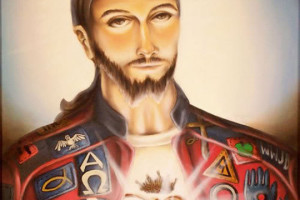Introduction
After the Enlightenment a major shift happened in western theology. New disciplines like anthropology and psychology were arising that made theologians and philosophers look at the world with a more horizontal than vertical gaze. Attention was moving away from God and moving to the world. As a result the doctrine of the Trinity had lost its once prominent place in theology. “Schleiermacher had famously relegated discussion of the Trinity to the conclusion of The Christian Faith.”
Barth in the Dogmatics approached “all aspects of Christian doctrine with Trinitarian teaching in mind.” Barth had brought the doctrine of the Trinity back from obscurity. Even though Barth has played such a significant role in bringing back the doctrine of the Trinity to theology, he is not without his fair share of attacks concerning this topic. One of which is the accusation that his doctrine of the Trinity is modalistic.
A few years ago Michael Ovey accused Barth of modalism in a recent book entitled Engaging With Barth. Though he recognizes Barth’s influence in bringing back to prominence the Trinity, Ovey believes that Barth’s “ideas seem to fall within patristic notions of modalism.” Ovey admits that Barth did not always hold the same position, but changed at some point, yet his research does not lead him to look beyond the first part of the Dogmatics.
Barth can be accused of a number of things, but I believe that Ovey is absolutely incorrect for accusing Barth of modalism in the doctrine of the trinity. Someone studying Barth’s theology needs to look at the Church Dogmatics as a whole. In his later work we can see the definitional distinctions that Ovey is looking for. We can see these definitional distinctions by looking at three specific aspects of Barth’s doctrine. In this first blog, I will address Barth’s use of the term modes of being. In the second installment of this blog I will then Barth’s use of logos asarkos to distinguish the second person of the Trinity, and finally his concept of God being in threefold repetition.
Barth’s use of Seinsweise
It would seem that Barth’s controversial use of “the term Seinsweise –‘way of being’ or ‘mode of being’—in place of the term ‘person’ to refer to the members of the Godhead,” would not be the wisest of decisions. This is one of the major concerns of Barth’s opponents concerning his Trinitarian doctrine. “For the casual readers, this [term modes of being] at once conjures up the specter of modalism.” Jürgen Moltmann, for example, believed that changing the term from persons to modes is a “triumph for the Sabellian modalism.” However, it is important to note that there are distinctions in the way that the patristic modalist used the term mode and the way Barth himself does. Having a good grasp of what Barth means by modes, or ways of being, is essential in showing that he is in fact using the term differently and for a different purpose. Grasping what Barth means, and his purpose, is essential to understanding his view of the Trinity.
Barth uses the term modes of being to make the distinction between Father, Son, and Holy Spirit because this is how he best saw fit to guard the unity and the freedom of God. For Barth, the term persons communicated that the Trinity is three separate personalities with a center of self-consciousness. As there is only one nature and one knowledge in the Godhead, there is only one self-consciousness. Barth shows the distinctions in the Trinity when he writes:
…the one Lord, the one personal God, is what He is not just in one mode but – we appeal in support simply to the result of our analysis of the biblical concept of revelation – in the mode of the Father, in the mode of the Son, and in the mode of the Holy Spirit.
The three modes correspond to one personality, which are essential to the Trinity. The modes of being need to be understood in terms of their ‘“distinctive generic relations to each other,’ their dissimilar relations of origin to one another’ or their ‘distinctive modes in the concept of revelation.”’ Barth is trying to emphasize the divine unity by making the God-head one personality which has a participation of the modes of being with the other modes. There is most certainly a distinction between the Father, Son, and Holy Spirit.
One example that Barth gives of the distinction between Father, Son, and Holy Spirit is in Church Dogmatics I.2. He shows a difference in the mode of the Father and the mode of the Son when he writes, “it is not the one nature of God as such with whose operation we have to do here. It is the one nature of God in the mode of existence of the Son which became Man.”
Barth also shows that “What God is towards us, He is eternally and antecedently in Himself.” What this means is that the Father is not given the name Father because of who He is in relation to His creation, but rather who He is in the God-head. God is not called Father because He is our Father, but because He is in Himself “Father, Originator, One who is capable of setting himself in relation to what is other than himself.” Because Barth is emphasizing that what God is towards us is what He is in Himself, “it would seem to be difficult to make the charge of modalism stick.”
Barth, in IV.2, inadvertently shows that there is a separation and distinction of the modes of being as he is denying the teaching of the Patripassians.
It is not at all the case that God has no part in the suffering of Jesus Christ even in His mode of being as a Father. No, there is a particula veri in the teaching of the Patripassians. This is that primarily it is God the Father who suffers in the offering and sending of His Son, in His abasement. The suffering is not His own, but the alien suffering of the creature, of man, which He takes to Himself in Him. But He does suffer it in the humiliation of the Son with a depth with which it never was or will be suffered by any man – apart from the One who is the Son … This Fatherly fellow-suffering of God is the mystery, that basis, of the humiliation of His Son; the truth of that which takes place historically in His crucifixion.
Here we see that Barth makes a clear distinction between the mode of the Father and the mode of the Son, though the Father does experience suffering with the Son.
We can see from IV.2 that there are definite distinctions between the mode of the Father and the mode of the Son in the incarnation. It is the mode of the Son “that acts in the incarnation” and “accepts and assumes man into unity with His own divine being.” The Son does not “do this without the Father,” but “as the one who was sent by the Father.” It is the mode of the Son and “not Father who becomes flesh.” Barth continues in this passage by making a distinction between the mode of the Son and the mode of the Spirit. “But it is the Son and not the Holy Spirit who becomes flesh.” We can see here in Barth’s own words that the incarnation is a work of the entire Trinity, but that it is only the mode of the Son, Jesus Christ, which becomes flesh, not the Father, and not the Spirit.
Also throughout IV.2 Barth continually uses terms such as “like God,” “image and reflection”, “after God”, and “correspondence,” to talk about the relationship of Jesus to the Father. Barth tightly “couples Jesus with God” but “it would be incorrect to suggest that he has a modalistic tendency.” Barth, in these passages, “does clearly see Jesus as distinct from God, being his earthly and historical correspondence.”
Against Moltmann and his other critics, Barth’s use of “Modes of Being” is not modalistic because he is clear in several places in the Dogmatics that the “threeness in God’s oneness is indeed grounded in the relations of Father, Son and Spirit.” For Barth, emphasizing one of the three modes to the point of diminishing the other two is forbidden.
Nathaniel Warne is currently a Ph.D. candidate at Durham University U.K. where he is studying theological ethics and political philosophy. He is currently studying under Christopher J. Insole and Alec Ryrie. Nathaniel received a B.S. in Art (Painting and drawing) and minored in Biblical Studies at Biola University. After receiving his undergraduate degree, Nathaniel spent three years as a professional session drummer. He then received an M.A. from Talbot School of Theology in moral and historical theology. He wrote his masters thesis on 16th century Geneva and its political influence of John Locke. Nathaniel was also a minister at Grace Evangelical Free Church, La Mirada before moving to Durham. He has been married to his beautiful wife Charissa for five years. Nathaniel’s primary academic interests: theological ethics, political philosophy, intersection of metaphysics with ethics, especially with regard to haecceity and modality, Puritan’s doctrine of calling, theology of work, history of natural law, Aristotle, and Søren Kierkegaard. He also enjoys reading: John Locke, Karl Barth, Philosophy of Aesthetics, and Literature of all sorts. Some hobbies of Nathaniel’s are playing and listening to music (jazz, folk, rock, hip-hop), cooking, foreign and domestic beers, and watching Fringe, 30 Rock, Big Bang Theory, and Cosby Show with his wife.
Nathaniel can be reached at: n.a.warne at durham.ac.uk





4 Comments
Leave your reply.